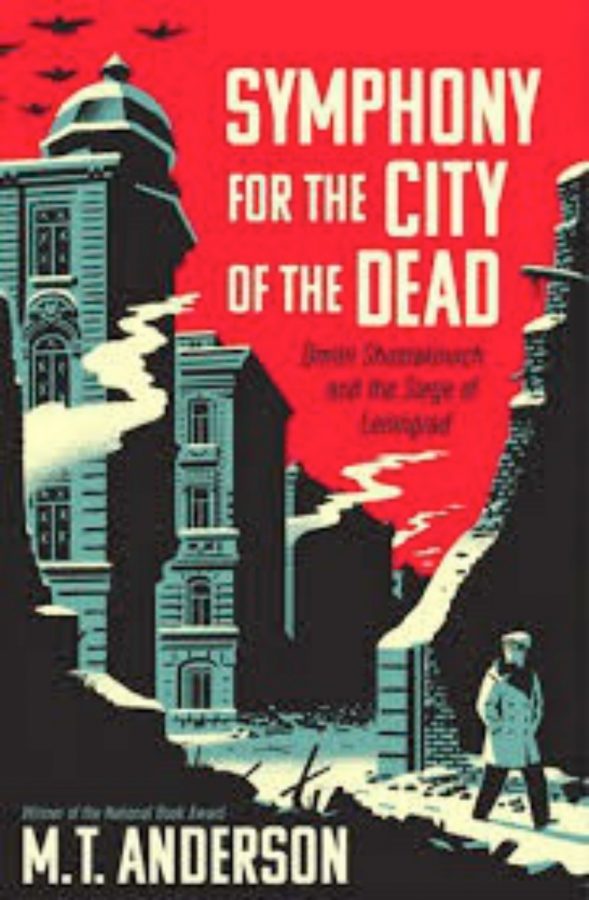Symphony for the City of the Dead by M.T. Anderson
September 2, 2016
This is a World War Two story like you’ve never seen before. Anderson travels deep into the heart of Russian uncertainty, devastation, and hope during the country’s most turbulent period in history. Following the life story of Dmitri Shostakovich, this book examines everything from his childhood to his career to the fascinating dichotomy in his character – outwardly, one saw a timid, delicate, man obedient to the regime that he knew was watching his every move. Yet his music spoke of rebellion, shared oppression, and the Old Russia before the rise of communism.
The “City of the Dead” is Leningrad, the city where Shostakovich grew up and composed most of his seventh symphony. German air raid bombs flew overhead, and he would mark the interruptions in his manuscript and carry it down to the bomb shelters. The city lost power, and he wrote the third movement by candlelight. The people began to starve and freeze, and Shostakovich fled with his family, nearly losing the precious draft on a train. Spring came, and fifteen musicians, all that remained of the Leningrad Radio Orchestra, received a copy of the score and readied their weakened fingers and willpower for the symphony’s most important premier. The Leningrad concert hall blazed with light, and soldiers defending the city attacked the German siege lines to draw fire away from the concert.
Symphony for the City of the Dead is a fascinating work of nonfiction, because despite its’ genre’s reputation for academia and detachment, it is a deeply emotional and riveting narrative. Anderson’s many sources leave no gaps in the story, yet every book, diary, and quote is treated with extreme caution – in Soviet Russia, anything could be twisted by propaganda. No stone is left unturned – the absolute dregs of humanity are brought to light next to unexpected patches of hope in a city that desperately tried everything to survive. I recommend this book to anyone interested in World War Two novels or music. The Russian side of the story is usually relegated to the background, yet it holds some of the most important aspects of the war. Even if a book about music history sounds a little out of your milieu, I encourage you to try it – and discover how a shy composer from a city of western ideals not only survived when many of his friends were killed, but used his music to fight back.


